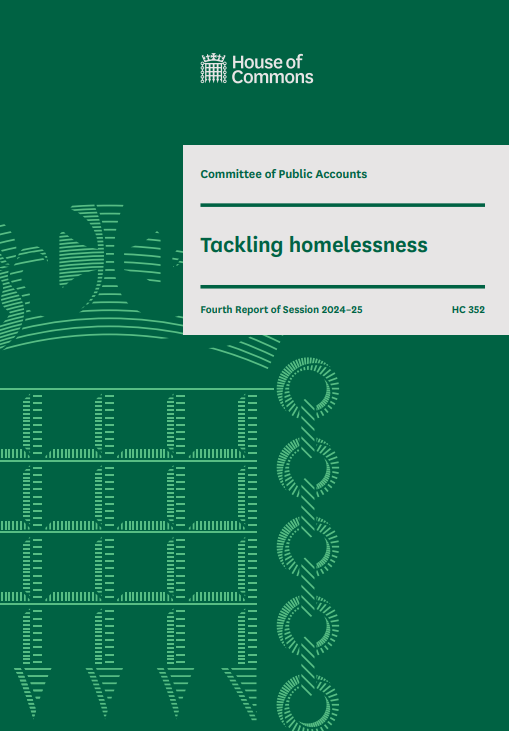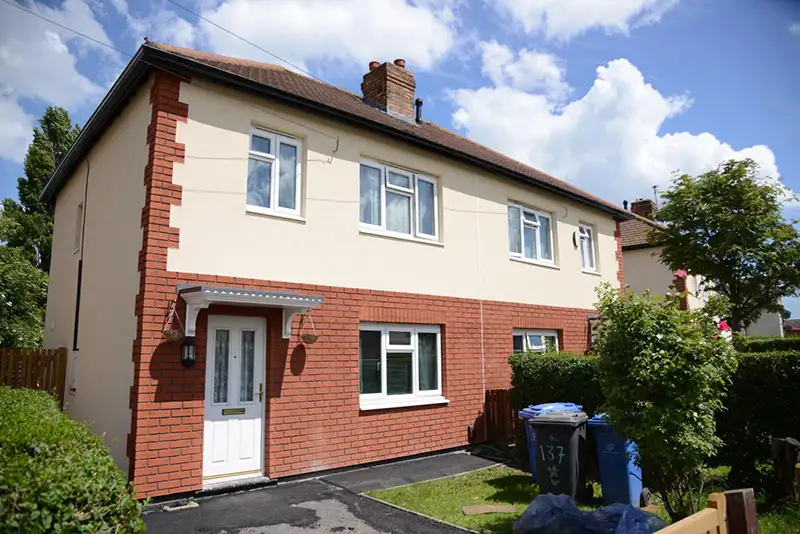CWAG Newsletter – June 2025

This Update includes the following
Government to Target Build Out Rates as part of new long-term Housing Strategy for England
To meet the 1.5 million homes target by the end of this Parliament, the Government has recognised that additional measures will be required to speed up the rate of housing delivery in England. The government is therefore consulting on measures to increase the rate at which planning permissions on paper turn into homes on the ground. These proposals will form part of a new long term Housing Strategy for England that is due for publication this summer.
Consultation on Improving Build Out Rates
On 25th May 2025, MHCLG published a six-week technical consultation on implementing measures to improve Build Out transparency. Proposals include a requirement to submit a build out statement as part of a planning application which will establish the housebuilding timeframe for the development. This will allow for greater transparency and accountability with further monitoring via a commencement notice at start on site and annual reporting to track progress. Developers that fail to build out sites within agreed timeframes may face penalties including a new ‘Delayed Homes Penalty’ (see below).
The consultation is seeking views on the implementation arrangements including the size of development to be within scope of the measures, and a proposal to introduce a new planning power allowing planning authorities to decline determining new applications where there are delays on existing developments. The consultation closes on 6th July 2025
Policy paper – Speeding Up Build Out
At the same time as issuing the consultation the Government also published a working paper to consult on wider proposals for speeding up Build Out rates including:
- A permanent Mortgage Guarantee Scheme to secure the supply of low deposit mortgages for first time buyers across the market cycle.
- Measures to support the growth of SME developers, particularly to encourage building on small sites (see below). The evidence suggests that small sites build out faster than the same number of units granted permission within a larger site.
- Promote more tenure diversity on larger sites as the evidence shows mixed tenure schemes have faster build out and market ‘absorption rates’ due to pre-sales to Registered Providers and institutional investors.
- Strategic master-planning of large sites to help de-risk projects and deliver appropriate economic and social infrastructure.
Other specific proposals include:
- Delayed Homes Penalty – local authorities to be given powers to levy financial penalties where a developer, without good reason falls materially (10% or more) behind the build out schedule agreed in the planning permission. This option would be very much a last resort and would require primary legislation. If agreed it would only apply to future planning permissions.
- Compulsory Purchase – The government will implement a new power introduced by the Levelling-up and Regeneration Act 2023 relating to the compulsory purchase of land which will remove risks to the use of compulsory purchase orders on stalled sites.
- Completion Notices – The government will implement reforms to completion notices in the Levelling-up and Regeneration Act 2023 which allow a local planning authority to issue a notice where a development is unlikely to be completed within a reasonable period. The notice will state that the planning permission will cease to have effect at the expiration of a further period specified in the notice.
Policy paper – Reforming Site Thresholds
This paper links to the Government’s objective of encouraging development activity on smaller sites by SME builders. Proposals include:
Faster decisions for small sites: A streamlined planning process for developments up to nine homes is proposed. For these schemes, planning decisions will be taken by planning officers not planning committees and Biodiversity Net Gain (BNG) requirements will be reduced.
A new ‘medium site’ category: Sites between 10 and 49 homes will face simpler rules and fewer costs – including a proposed exemption from the Building Safety Levy and simplified Biodiversity Net Gain (BNG) rules.
A new National Housing Delivery Fund: Targeted funding arrangements via Homes England to be confirmed at the spending review.
Pilot Small Sites Aggregator: A pilot scheme, to attract private investment to build new social rent homes on small non-viable brownfield sites will be trialled in Bristol, Sheffield and London Borough of Lewisham.
Assessing the Impact of Right to Buy Changes.
The changes to RTB discounts announced by the Chancellor in the Autumn Statement last year were widely welcomed as a means of reducing ongoing losses of much needed social housing. However, the announcement triggered an unprecedented number of RTB applications around the country, the impact of which is now slowly becoming clearer.
Although many in the sector had warned against allowing a gap between announcing the new policy and implementation, the surge in applications received by local authorities in the three weeks before the 21 November cut-off date is unprecedented. The key driver was undoubtably the significant change to the maximum level of discounts available from £136,000 in London and £102,000 elsewhere to between £16,000 and £38,000 depending on region, with the lowest discount applicable in most London boroughs.
Although there is no comprehensive data on the number of applications received following the announcement of changes to discount levels, a limited survey of 8 authorities by HQN found that in this sample group, authorities received 31 times more RTB applications in November 2024 than in the previous month. Although not all applications will necessarily be pursued to completion it is extremely difficult to predict how applications will translate to sales as these are likely to occur over an extended time period. However, recent forecasts suggest that the number of RTB sales in 2025/26 is likely to be at the highest level in the past 20 years. Modelling by the i- newspaper based on a representative sample of 20 councils, both urban and rural, and spread across England suggests the number of RTB sales in 2025/26 will be 18,000 as compared with 7,000 in 2024/25.
Whilst the government and the sector are keen to focus on the longer-term reductions in RTB that are expected as a result of changes to the scheme, the immediate short-term surge in applications is a cause of significant concern increasing pressures on council housing resources at a time of unprecedented homelessness pressures. Replacing the forecast loss of stock will also take time and reduce the impact of new funding announcements expected as part of the Comprehensive Spending Review. It will take a number of years to make good losses on the scale now expected.
On 28/05 the Local Government Association sent a survey to housing directors in all stockholding councils on the impact of the recent changes the Government made to the Right to Buy scheme. The survey asks about the reduction in discounts and how this may have impacted applications from tenants to purchase their social housing properties during the period of 30 October to 20 November 2024, as well as the impacts of the other reforms. Please get in touch with molly.o’grady@local.gov.uk if you have any questions about the survey or if your housing director has not received a link to the survey.
Responsibility for fire safety moves to MHCLG
From 1st April 2025 responsibility for oversight of fire safety was transferred from the Home Office to MHCLG. The change delivers on a key recommendation from the Grenfell Tower Inquiry’s Phase 2 report, which criticised the fragmentation of responsibility for fire safety in the construction industry and advised that fire and building safety should be overseen by a single department.
The change means MHCLG, which already oversees building regulations and housing policy, will also be responsible for fire safety guidance and regulations. This integration is expected to strengthen safety coordination and policy implementation, providing greater clarity and accountability in managing fire risk in residential buildings.
Diary Date – Finance and Business Planning Meeting – Thursday 10th July 2025
Steve Partridge – Savills Director of Housing Consultancy will be leading this event for finance officers and others with an interest in HRA strategy and business planning. The meeting will include a briefing on the implications of the Comprehensive Spending Review.
The event is a free event that is open to CWAG members. To book a place, contact the CWAG Policy Officer.

Recent Publications
Securing the Future of Council Housing – Establishing a ‘Green and Decent’ Homes Programme – Southwark Council (May 2025)
This policy proposal document follows the 2024 Southwark report ‘Securing the future of council housing’ which set out proposals for delivering a sustainable HRA Agreement with Government and was endorsed by 112 councils with HRAs. This latest document sets out 10 core principles required for the sector to address current challenges and deliver the wider objectives of building new homes, addressing energy efficiency and net zero as well as building safety and a new decent homes standard. The document highlights both the scale of the challenges facing the sector along with the ambition to tackle them.
Triaging repair reports – key learning around emergencies ahead of Awaab’s Law – Housing Ombudsman (20 May 2025)
This report aims to address a lack of consistency around what social landlords consider to be an emergency repair. A number of severe maladministration cases are examined where the landlord did not identify a repair as an emergency.
Lessons highlighted include:
- Lack of consistency in the way landlords define and approach emergency repairs
- Reports of ‘no access’ leading to closure of cases based on limited evidence
- Failure to make a connection between the circumstances of the person living in the property and its condition
- A pattern of temporary fixes being made but the permanent resolution being severely delayed creating potentially hazardous conditions
- Service failures around poor record keeping and poor communication, including poor coordination and the wrong trades being sent to do works.
The Tackling Stigma Journey Planner – published by the Stop Housing Stigma Campaign (May 2025)
This is a new flexible tool designed to help tenants and landlords work together on plans to tackle social housing stigma. The journey planner will particularly assist tenants and landlords work together to define what it means to comply with the standard that requires landlords to treat tenants with fairness and respect.
England’s Homeless Children: The crisis in temporary accommodation – HCLG Committee House of Commons (April 2025)
This cross-party committee report focuses on the rising demand for temporary accommodation and the impact on the children affected. There are currently over 164,000 homeless children currently living in temporary accommodation which for many turns out to be very poor quality and far from temporary. The report makes a number of recommendations including:
- Mandatory inspection of housing by local authorities before it is used as temporary accommodation, and whenever new residents are placed in the property.
- New requirement for local authorities to notify the host authority before they make an out of area placement.
- A formalised system for notifying a child’s school and GP if they are moved into temporary accommodation. To
- A call for the government to ensure publication of its strategy on ending homelessness by July 2025 so meaningful progress towards tackling the crisis in temporary accommodation during this Parliament.
Simply about Supply? How Housing Issues vary by Region – Report by IPPR North (April 2025)
This report considers affordability, tenure, and quality issues by region to make the case for regionally responsive housing policy arguing that simply delivering more homes at current or 80% of the market rate (i.e. currently defined as affordable) will not resolve England’s housing issues. The author has summarised the research findings and produced a useful graphic identifying the different housing challenges facing each English Region.
Learning From Severe Maladministration Report – Housing Ombudsman (April 2025)
This latest report from the Housing Ombudsman examines what makes good communication in complaint handling. The report identifies the 4 key elements required for confident and appropriate communication:
- Timely
- Transparent
- Tailored
- Tone
With the implementation of Awaab’s Law less than 6 months away, the need for organisations to review their communications performance, both internal and external, verbal and written, is more pressing than ever. The way an organisation handles communication, provides an insight into organisational culture and values.
The report draws examples from recent casework on damp and mould to highlight the importance of each communication element.









